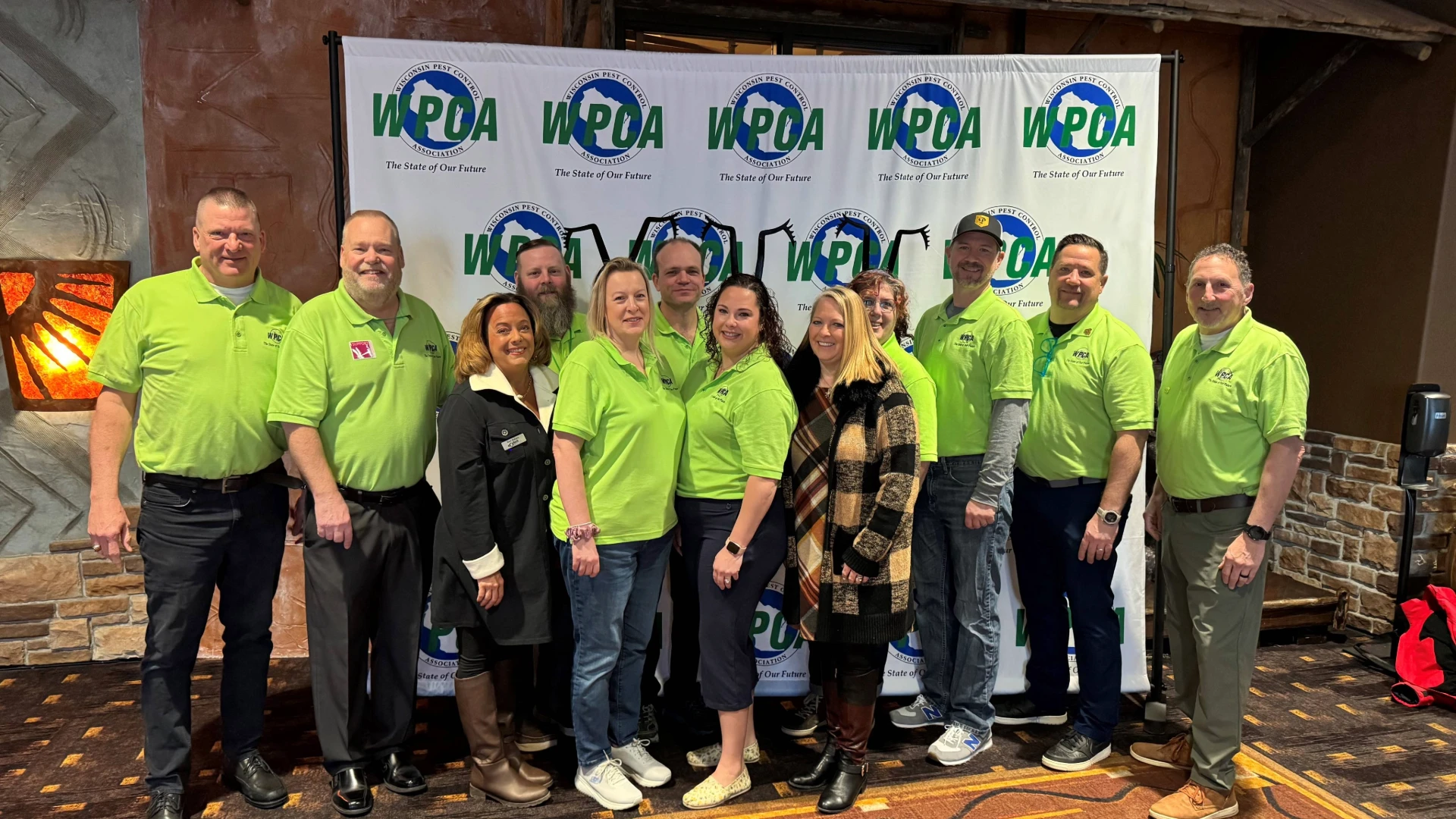 Two incidents occurred recently that have the industry taking extra precautions when fumigating structures.
Two incidents occurred recently that have the industry taking extra precautions when fumigating structures.
The first occurred in March when a Terminix employee used methyl bromide to fumigate a unit at a condominium resort in St. John, U.S. Virgin Islands, to control powderpost beetles. Two days later, four family members from Delaware vacationing in the unit above were transported to the hospital with acute methyl bromide toxicity, three with life-threatening illness, reported the Centers for Disease Control and Prevention. Months later the father and two teenage sons remain in serious condition with loss of motor skills and paralysis, reported local media.
The use of methyl bromide is prohibited in the U.S. for use in homes and other residential settings. Investigations by the Environmental Protection Agency and U.S. Virgin Islands government found methyl bromide also had been used at the complex in October 2014; an additional 37 individuals may have been exposed to the fumigant from the two applications. Methyl bromide also may have been improperly applied at other locations in the Virgin Islands and Puerto Rico by other pest control firms.
A Terminix spokesperson emailed PCT the following statement in April:
“First and foremost, the family is in our thoughts and prayers. We’re cooperating with authorities in their investigation, and we’re conducting our own thorough internal investigation. We’re committed to performing all work we undertake in a way that is safe for our employees, customers and the public.”
According to a Sept. 10 CNN report, the company said it has taken steps to halt fumigation in the U.S. Virgin Islands, reinforce policies with employees and speak to technicians about the specific products they use and how they’re applied.
The Chemicals in Question
Methyl Bromide
The U.S. pest management industry uses methyl bromide for import and export fumigation treatments and certain commodity uses. It is not labeled for use in homes and residential settings in the United States. Signs of poisoning include headaches, nausea, vomiting, difficulty with vision, lack of energy, confusion, loss of coordination, slurred speech, skin, eye and respiratory irritation, paralysis, convulsions, coma and death.
Sulfuryl Fluoride
Sulfuryl fluoride is used by PMPs in the U.S. to protect food products and commodities from insects and rodents and to control wood-destroying pests in structures. It is a central nervous system depressant. Signs of poisoning include nose, eye, throat and respiratory irritation, shortness of breath, numbness, weakness, nausea, abdominal pain, slowed speech or movements, coughing, vomiting, restlessness, muscle twitching, seizures, pulmonary edema and death.
Sources: National Pest Management Association; National Pesticide Information Center
A second fumigation incident in Palm City, Fla., may have left a 10-year-old boy with permanent brain damage. In August, Terminix subcontractor Sunland Pest Control Services used sulfuryl fluoride in a tent fumigation for drywood termites. After being given the all-clear, the family returned to the home and later began experiencing signs of acute toxicity, according to media reports. Multiple family members became ill; the young boy had the most severe reaction with muscular, neurological and speech impairments and has spent weeks in the hospital. His prognosis is unclear, according to media reports.
The Florida Department of Agriculture and Consumer Services issued a stop work order prohibiting Sunland Pest Control Services from conducting fumigations while its investigation with EPA and the Florida Department of Health is ongoing, wrote agency spokesperson Aaron Keller in an email.
Sunland Pest Control Services of West Palm Beach, Fla., could not be reached for comment. The use of subcontractors for tent fumigation is a common industry practice, said experts.
A Terminix spokesperson responded by email: “We were saddened to learn of this and our hearts are with the family. We are carefully reviewing the matter.”
Criminal investigations are ongoing in both cases. In September, the Palm City family filed suit against Terminix and Sunland Pest Control Services. Lawsuits are expected to be filed in the Virgin Islands case.
What went wrong?
Oftentimes in cases such as this, ventilation can be an issue. In the Florida case involving sulfuryl fluoride, the house “probably wasn’t ventilated properly and verified that it was ventilated,” said industry consultant Richard Kramer, who is not involved with this case. Without knowing the specifics of this incident, he said, “gas sometimes can get trapped in certain areas,” such as in the attic air-handling units that when turned back on can recirculate the gas back into the living space.
That’s why it’s important to ventilate such spaces. Kramer advised PMPs performing fumigations to “ensure that the entire structure, including the attic spaces, the ventilation system, is adequately ventilated prior to allowing somebody to reoccupy” the structure.
Because sulfuryl fluoride is odorless and colorless, Kramer reminded PMPs to use a warning agent like chloropicrin, an irritant that immediately warns people of the presence of the gas, in the fumigation process.
Methyl bromide is no longer labeled in the U.S. for residential fumigation and should not have been used in this way. The U.S. Virgin Islands are a U.S. Territory, which puts them under EPA regulation, Kramer said.
The industry responds.
Jim Fredericks, vice president of technical and regulatory affairs at the National Pest Management Association, urged PMPs to always “read and follow label instructions.”
In an email, the association reminded members that, “In the United States, no other group of chemicals used by our industry are more thoroughly regulated than fumigants, whose production, distribution and use patterns are carefully scrutinized by the EPA and state pesticide regulatory agencies.”
NPMA is working with groups to provide additional fumigation training opportunities for PMPs in the Caribbean. It’s a “collaborative effort” with the Association of Structural Pest Control Regulatory Officials, Association of American Pesticide Control Officials, the U.S. Virgin Islands Department of Planning and Natural Resources, Puerto Rico Department of Agriculture and EPA, said Fredericks.
CNN reported that nearly $100,000 in federal funds to train Virgin Islands pesticide applicators did not go toward training, and that applicators were recertified without being retrained.
In addition, NPMA’s fumigation committee is developing additional training resources for fumigators and technicians performing fumigations. “We know that the professionalism of the industry hinges on the level of training that’s being provided and being received,” said Fredericks. “We’re working real hard along with our members to develop that training.”
According to industry experts, about 125,000 drywood termite fumigations were conducted in the U.S. in 2014.
The author is a frequent contributor to PCT.

Explore the October 2015 Issue
Check out more from this issue and find your next story to read.
Latest from Pest Control Technology
- David Cooksey PestVet of the Year, Policy Person of the Year Recognized
- Pink Pest Solutions Opens New Kansas City Office
- GA Dept. of Ag Experts Urge Reporting of Yellow-legged Hornet Embryo Nests
- Lloyd Pest Control Treats 'Kitchen Nightmare' Cockroach Infestation
- Beach Pest Service Opens New Office in Hampstead, N.C.
- NYC PCO Growing Business with Focus on Corporate Clients
- Massey Services Promotes Silver, Crespo to Director Roles
- Recurring Services Model, Wildlife Offerings Lead to Impressive Growth for Tailor Made





